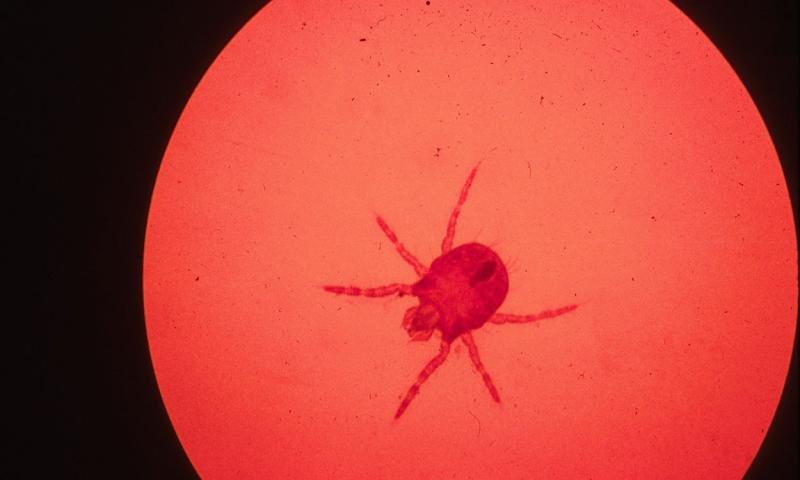
Written with contributions by Shelby Pritchard, former SDSU Extension Pest Management Specialist.
Originally Submitted: August 18, 2022
Chiggers are a persistent summer pest and an arthropod that many people want to get rid of in their lawns. Unfortunately, chiggers are difficult to manage using area-wide treatments. The best way to prevent bites and irritation is to take precautions when entering their territory.
About Chiggers
While chiggers are not insects (they have more than six legs), they are arthropods in the class Arachnida. They are mites (not spiders), and if you were to look at them under magnification, you would see eight legs. The common name ‘chigger’ most often refers to the larval form of the Trombiculid mite. These mites feed on mammals, including people, during the larval stage and drop off after feeding to continue their development.
For many people, chiggers cause skin irritation when they feed. Chigger bites often form a small, clear blister, but not everyone has the same reaction to their saliva. Remember, you cannot diagnose an arthropod just from the bite or skin irritation alone.
Lifecycle
- The mite species that include chiggers go through four stages of development: egg, larva, nymph and adult.
- Once the eggs hatch, the larva seek out a host, feed and then continue to move through the nymph stages before becoming an adult mite.
- The nymphs and adults are predatory and feed on other small arthropods. The larval stage is the only one that is a nuisance to humans.
Myths
- One of the most-persistent myths is that chiggers burrow into the skin and remain there for an extended period. As previously mentioned, chiggers are the larval stage of the mite. While they are the only stage that feeds on mammals, they do not stay on them long-term.
- Chiggers are also not blood-feeders. They release an enzyme that ruptures and digests skin cells, but they do not suck out blood as mosquitos do.
Chigger Management
While it is understandable that people want to eliminate these arthropods, the better defense against chiggers is being well-prepared before going outside. Wear a repellent with an EPA-approved active ingredient, such as DEET, which is labeled for chiggers. Wear a long-sleeved shirt and long pants. If you know you were in chigger territory, change your clothes and take a shower as soon as you can. Chiggers can take some time to find a feeding site, so showering can physically remove them before they have a chance to bite.


